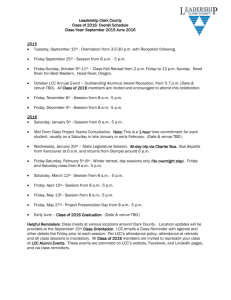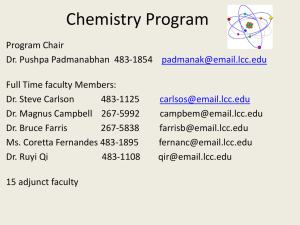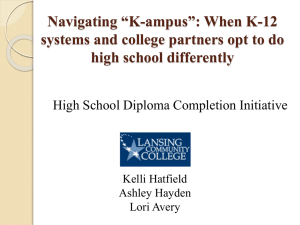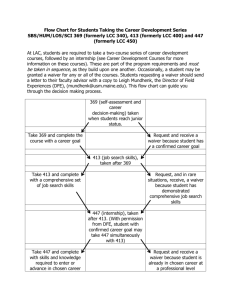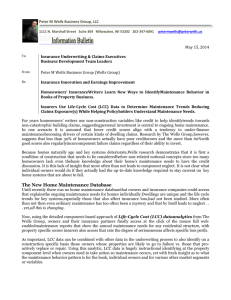Principles to Guide the Coordination of the College Now Program at
advertisement
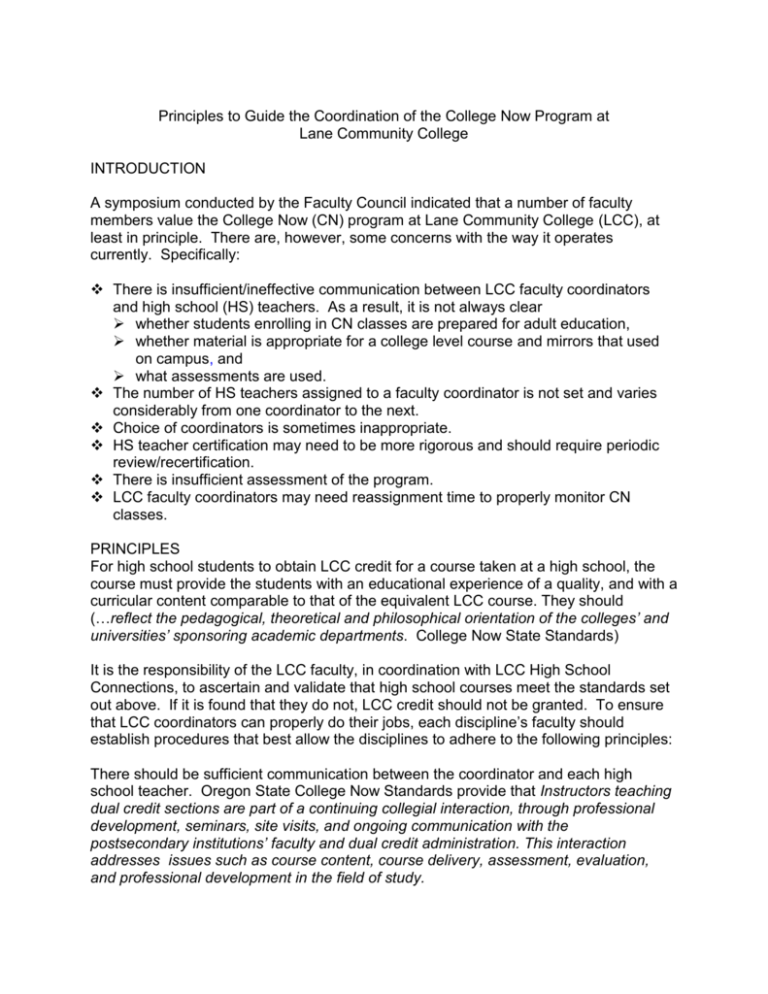
Principles to Guide the Coordination of the College Now Program at Lane Community College INTRODUCTION A symposium conducted by the Faculty Council indicated that a number of faculty members value the College Now (CN) program at Lane Community College (LCC), at least in principle. There are, however, some concerns with the way it operates currently. Specifically: There is insufficient/ineffective communication between LCC faculty coordinators and high school (HS) teachers. As a result, it is not always clear whether students enrolling in CN classes are prepared for adult education, whether material is appropriate for a college level course and mirrors that used on campus, and what assessments are used. The number of HS teachers assigned to a faculty coordinator is not set and varies considerably from one coordinator to the next. Choice of coordinators is sometimes inappropriate. HS teacher certification may need to be more rigorous and should require periodic review/recertification. There is insufficient assessment of the program. LCC faculty coordinators may need reassignment time to properly monitor CN classes. PRINCIPLES For high school students to obtain LCC credit for a course taken at a high school, the course must provide the students with an educational experience of a quality, and with a curricular content comparable to that of the equivalent LCC course. They should (…reflect the pedagogical, theoretical and philosophical orientation of the colleges’ and universities’ sponsoring academic departments. College Now State Standards) It is the responsibility of the LCC faculty, in coordination with LCC High School Connections, to ascertain and validate that high school courses meet the standards set out above. If it is found that they do not, LCC credit should not be granted. To ensure that LCC coordinators can properly do their jobs, each discipline’s faculty should establish procedures that best allow the disciplines to adhere to the following principles: There should be sufficient communication between the coordinator and each high school teacher. Oregon State College Now Standards provide that Instructors teaching dual credit sections are part of a continuing collegial interaction, through professional development, seminars, site visits, and ongoing communication with the postsecondary institutions’ faculty and dual credit administration. This interaction addresses issues such as course content, course delivery, assessment, evaluation, and professional development in the field of study. This interaction would necessarily include coordinator visits to each high school teacher’s CN class (frequency of visits dependent on discipline requirements). In some disciplines, where shared reliable and valid assessments are in place and/or students are evaluated by third party measures, the discipline's faculty may find that classroom visits are not necessary. For the majority of departments and courses, however, regular classroom visits should be a part of the CN program. a sufficient number scheduled meetings focused on pedagogical issues (curriculum, assessment, etc.). There should be regular review of HS teacher’s pedagogical approaches, teaching tools and student assessments. The frequency of such reviews would be determined by the discipline. There should be written documentation of required student outcomes, attendance policies, coordinator expectations (meetings, etc.) and student and program assessments. There should be a college education orientation for students, written jointly by the HS teacher and the LCC coordinator. There should be a reasonable limit on the number of HS teachers assigned to a coordinator, or there should be a standard amount of reassignment time per HS teacher assignment. A LCC coordinator should be approved by the rest of the discipline’s faculty. She/he should be sufficiently knowledgeable and experienced to be able to successfully coordinate with the HS teacher. Details here may vary among disciplines, but some may consider limiting coordinator positions to full-time faculty members with at least three years experience teaching the equivalent course at LCC. There should be regular review of HS teacher certification. This should include the established certification criteria and approval of the LCC discipline area coordinator. Each CN course, and the overall CN program should be assessed by the LCC discipline area coordinator(s) the HS teacher(s) and the students in the CN classes. CN coordination should not overburden LCC faculty members. If proper coordination represents an unreasonable increase in workload, coordinators should get the appropriate reassignment time. There should be annual faculty meetings including of all LCC coordinators, called by the faculty council to review this document and the college’s alignment with it and other issues associated with the college now program. Adopted by the Faculty Council, 10 February 2012.
